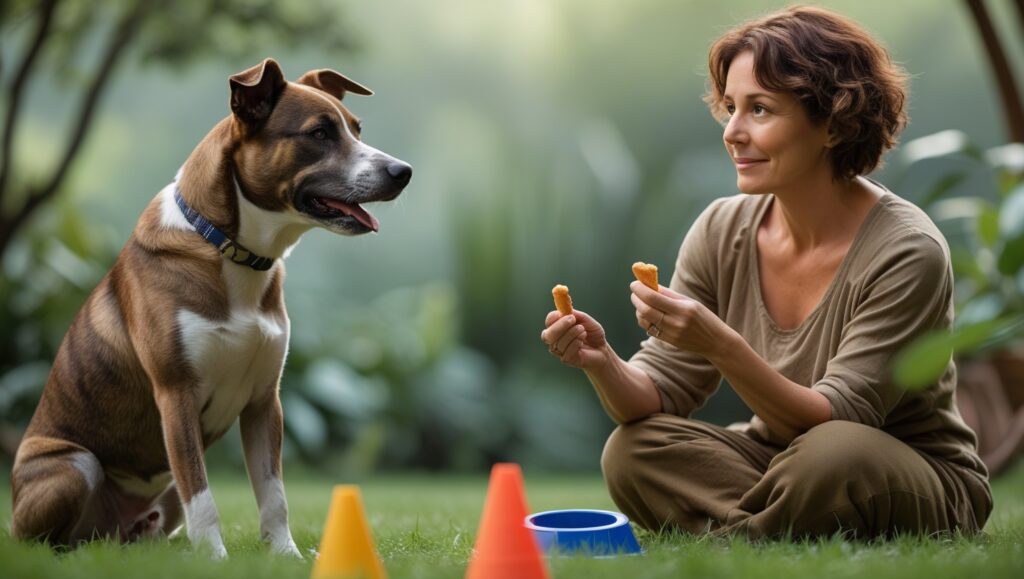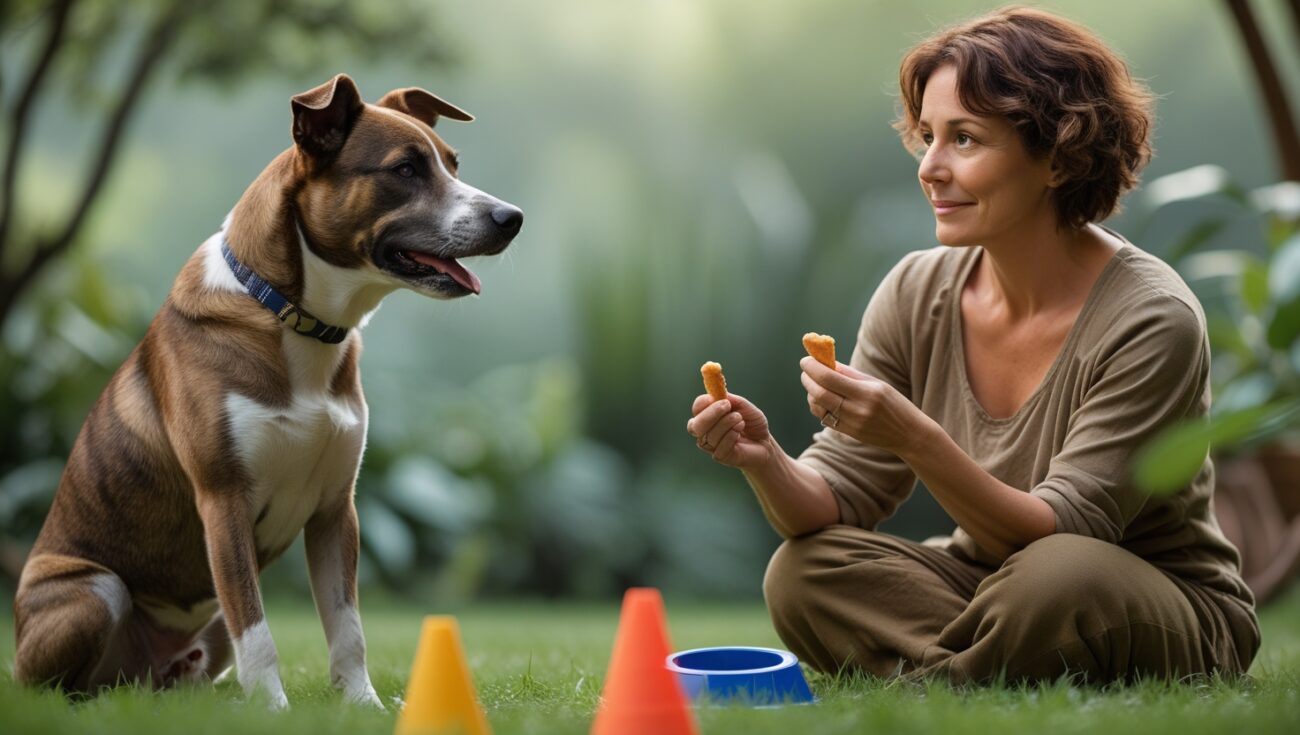Training a Reactive Dog With Brain Games
My dog used to be very reactive. If she saw another dog, a person on a bike, or even a squirrel, she would bark, pull, and completely lose focus. Walks were stressful, visits to the vet were chaotic, and I honestly didn’t know what to do. Then I discovered that brain games could help — and once I started using them consistently, everything began to change.
In this post, I’ll share exactly how I started training my reactive dog with brain games — and how you can do the same. If you want the full program that worked for us, here’s my personal link:
Brain Training for Dogs — Click here to check it out

Table of Contents
Why Brain Games Help With Reactivity
I used to think my dog just needed more exercise. But what I learned is that reactivity isn’t about physical energy — it’s about emotional regulation and impulse control.
When dogs are reactive, their brain is in overdrive — and they’re reacting automatically instead of thinking. That’s why adding the right mental stimulation is so important. It helps teach your dog:
- How to stay calm under stress
- How to pause and think instead of react
- How to build emotional resilience
- How to focus on you, even in exciting situations
The Changes I Saw
Once I added brain games to our daily routine:
- My dog’s reactivity on walks decreased
- She was calmer around other dogs
- She recovered faster after getting startled
- She became more focused on me
- Walks were much more enjoyable
The Games That Worked for Us
Engagement Games
Focus games helped teach my dog to pay attention to me — even when distractions were present.
Impulse Control Games
Games like “wait” and “leave it” built her ability to pause and think instead of react impulsively.
Scent Work
Scent games helped her relax and engage her brain in a positive way — which carried over into calmer behavior overall.
Advanced Brain Games
Through this program, I learned tons of step-by-step games that taught my dog better emotional control:
Brain Training for Dogs — Full Program Here
The Results
The more I used brain games:
- The more confident and calm my dog became
- The less reactive she was in stressful situations
- The more enjoyable our life together became — both at home and on walks
Final Thoughts
If you’re dealing with a reactive dog, don’t lose hope. With the right mental stimulation, you can help them learn to stay calm and think — instead of react automatically.
This program helped me and my dog more than anything else I tried:
Brain Training for Dogs — Click here to check it out
If you stick with it, you’ll be amazed at how much progress your reactive dog can make — and how much more enjoyable life with them can be.
Before I started using brain games, I tried everything to help my reactive dog — longer walks, special collars, calming sprays — but nothing really got to the root of the problem. That’s when I realized her mind was the key.
What really surprised me was how quickly her behavior started to change once her brain was worked in the right way. After a few weeks of consistent mental stimulation, she was calmer and more focused in situations that used to trigger her.
If you’re unsure how to start, this is the exact program that gave me a clear plan and tons of practical games:
Brain Training for Dogs — Full Program Here
One of the biggest shifts I noticed was how these games helped build my dog’s impulse control. She learned that she didn’t have to react instantly — she could pause, look to me, and choose a better behavior.
And that’s the real magic of brain games — they teach your dog to think before they act.
Even just 10–15 minutes a day of the right games made a huge difference. It’s not about tiring them out physically — it’s about exercising their mind in positive ways.
Another benefit? The games strengthened our bond. As my dog learned to trust me and focus on me, our connection deepened — and that trust helped her feel more secure in tricky situations.
One of my favorite parts of this program is that it works for dogs of all ages and all levels of reactivity — whether your dog barks at strangers, other dogs, bikes, or sounds.
Another tip? Use the games to build calm focus in your home first — then gradually practice in more challenging environments.
I also noticed that my dog recovered from startling events faster. If something unexpected happened, she didn’t spiral — she looked to me for guidance and calmed down much quicker.
If you’ve been struggling with a reactive dog and feeling discouraged — trust me, you’re not alone. I was there too, and this program gave me the tools to finally make progress:
Brain Training for Dogs — Click here to check it out
Now, our walks are so much more enjoyable. My dog is able to stay calm, focus on me, and handle distractions so much better than before.
If your goal is to help your dog feel calm, confident, and focused — not triggered and reactive — these brain games can truly help.
The key is consistency and patience — and this program gives you everything you need to succeed:
Brain Training for Dogs — Click here to check it out
With the right mental work, your reactive dog can improve — and you’ll both enjoy a much happier life together.
Another thing I loved is how this program helped reduce my own stress on walks. Once my dog learned to stay more focused and calm, I wasn’t constantly bracing for her to react — which made outings much more enjoyable for both of us.
If you’ve ever avoided certain streets, parks, or times of day because of your dog’s reactivity, you know how limiting that can feel. This is exactly the program that gave me a new sense of freedom:
Brain Training for Dogs — Full Program Here
And because the games build trust and focus, they helped my dog feel more secure around me — which meant fewer overreactions and better recovery when something did startle her.
Another bonus? These exercises also helped improve my dog’s overall obedience — not just around triggers, but in daily life too.
Now, I can honestly say my dog is so much more confident and balanced — and it all started with adding the right mental stimulation to her day.
If you’re ready to help your reactive dog make real progress — and feel good doing it — this is where I’d start:
Brain Training for Dogs — Click here to check it out

